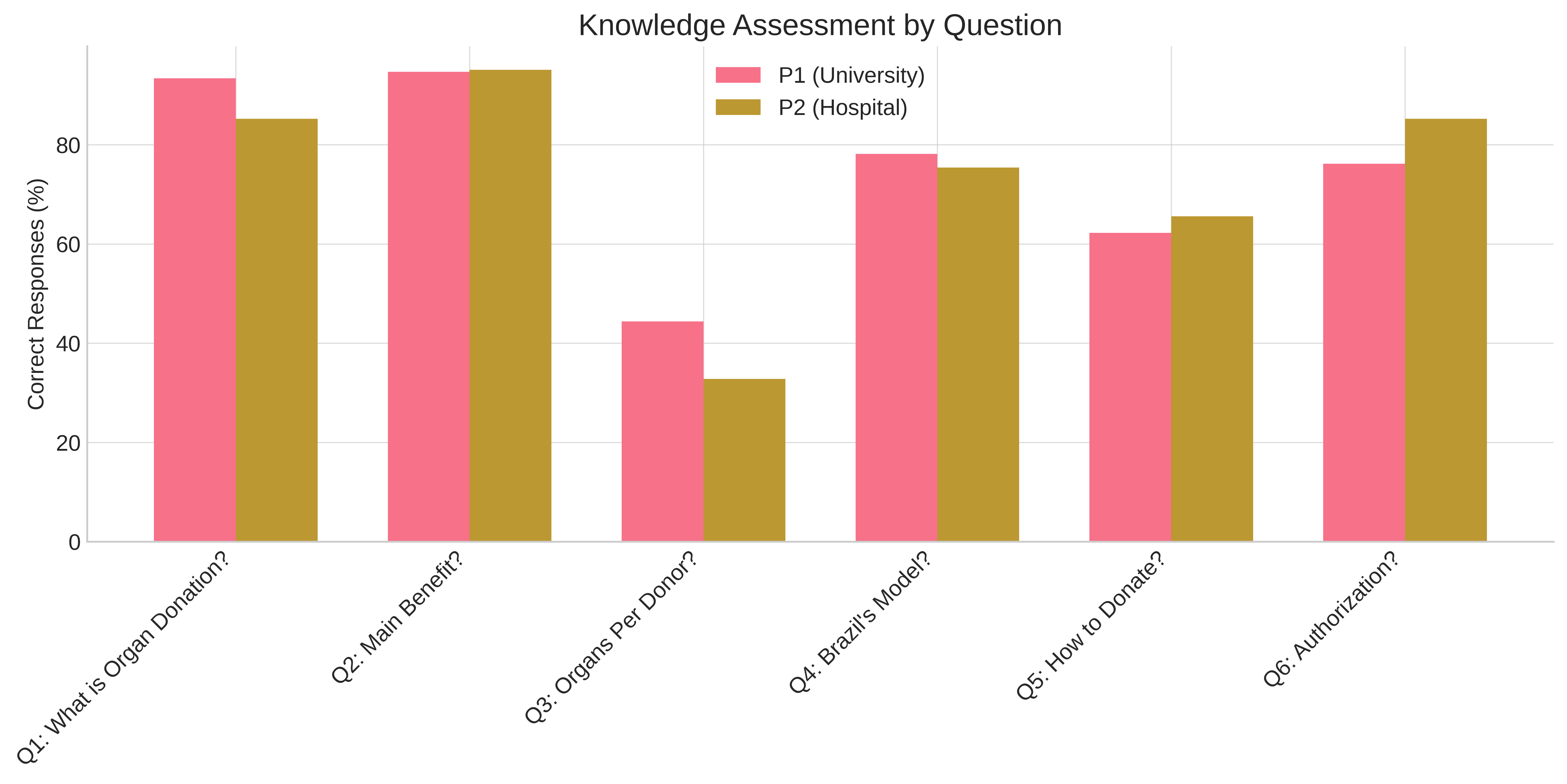Actions for promoting organ donation: An experience report from a health-promoting university in Brazil
Luiz Gustavo Torres Dias da Cruz1,2, Danielle Moreira Marques1, Rogério Marques de Souza2, Gabriella Macedo de Souza2, Fernanda Martins Pereira Hildebrandt3.
1Research Center for Evidence-Based Nursing – NUPEBe, Universidade do Estado do Rio de Janeiro, Rio de Janeiro , Brazil; 2Department of Nursing Coordination, Hospital Universitário Pedro Ernesto, Rio de Janeiro , Brazil; 3Faculty of Medical Sciences, Rio de Janeiro State University (UERJ), Universidade do Estado do Rio de Janeiro, Rio de Janeiro , Brazil
Research Center for Evidence-Based Nursing – NUPEBe.
Introduction: Brazil's organ donation system, though robust, faces challenges in public engagement. This study evaluates gamification as an educational tool to improve knowledge about organ donation processes at a health-promoting university hospital.
Methods: A descriptive study was conducted with 261 participants (students, healthcare professionals, and hospital users) through interactive Kahoot games during two health promotion events (August-September 2023). The game included 6 questions about Brazil's donation process. Data analysis used Python (SciPy, Matplotlib) with Mann-Whitney tests for non-normal distributions (Shapiro-Wilk p<0.05).
Results: Participants showed high engagement (79% average correct answers). Key gaps were identified: 66% didn't understand family authorization requirements (p=0.039), and 58% underestimated potential organs donated per donor. Significant differences existed between age groups (median 21 vs 35 years, p=0.018). 100% rated the experience positively.

Conclusion: Gamification effectively promotes donation culture while identifying knowledge gaps. Results informed local CIHDOTT strategies and support nationwide implementation of Law 14.722/2023 for donation education. This model shows promise for low-resource settings.Our findings align with WHO recommendations for innovative donation education. The 34% family consent knowledge gap mirrors national studies, suggesting systemic communication issues. Gamification's success (100% approval) supports its use in Law 14.722/2023 implementation.

Limitations: Single-center study with convenience sampling. Future research should include control groups and multicenter validation.
The authors express their sincere gratitude to the State Transplant Center of Rio de Janeiro for providing strategic support for organ donation activities, and to the Pedro Ernesto University Hospital (HUPE/UERJ) for its institutional collaboration. Special thanks to the Nursing Coordination and the Faculty of Medical Sciences at Rio de Janeiro State University (UERJ) for their academic and operational support throughout the project. We also thank the DTI Foundation for awarding the Pepe Builtrón Scholarship to the first author, enabling international academic exchange and participation in global networks dedicated to organ donation and transplantation.
[1] Organ Donation
[2] Health Promotion
[3] Universities
[4] Community Participation
[5] Education, Nursing